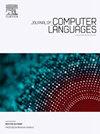使用LR解析改进基于llm的代码完成
IF 1.8
3区 计算机科学
Q3 COMPUTER SCIENCE, SOFTWARE ENGINEERING
引用次数: 0
摘要
代码补全是现代ide的一个关键特性,可以提高编程效率。传统的系统依赖于前缀过滤和静态排名,但往往用冗长的、按字母顺序排序的列表淹没用户。最近的研究引入了基于lr解析的方法,从语言语法中获得补全候选项,并使用开源程序计算它们的排名;然而,这些方法只建议结构候选,需要手工细化为完整的代码。为了解决这个问题,我们提出了一种将LR解析与llm集成在一起的混合方法,以提高准确性和可用性。我们的方法通过LLM将LR解析细化为文本代码建议,并参考来自开源程序的排名候选数据库。这结合了LR解析的语法精度和llm的生成能力。本研究探讨llm是否受益于LR结构候选人在代码完成。通过比较有和没有这些候选人的完成情况,我们评估他们的影响。在先前研究的基础上,我们还探讨了如何利用排名靠前的候选结构来有效地提高基于llm的代码完成精度。我们还通过VSCode扩展为Microsoft Small Basic和c演示了我们的方法。作为一种语言无关的解决方案,我们的系统适用于任何具有定义LR语法的语言。我们的研究结果表明,将LR解析与基于llm的补全集成可以提高准确性和可用性,为现代ide中更有效的代码补全铺平了道路。本文章由计算机程序翻译,如有差异,请以英文原文为准。
Improving LLM-based code completion using LR parsing
Code completion is a crucial feature in modern IDEs, improving programming efficiency. Traditional systems rely on prefix filtering and static ranking but often overwhelm users with lengthy, alphabetically sorted lists. Recent research has introduced LR-parsing-based approaches that derive completion candidates from language syntax and compute their ranks using open-source programs; however, these methods only suggest structural candidates, requiring manual refinement into complete code. To address this, we propose a hybrid method that integrates LR parsing with LLMs to enhance accuracy and usability. Our approach refines structural candidates using LR parsing into textual code suggestions via an LLM, referencing a database of ranked candidates from open-source programs. This combines the syntactic precision of LR parsing with the generative capabilities of LLMs. This study examines whether LLMs benefit from LR structural candidates in code completion. By comparing completions with and without these candidates, we assess their impact. Building on prior research, we also explore how leveraging top-ranked structural candidates can effectively enhance LLM-based code completion precision. We also demonstrate our method through VSCode extensions for Microsoft Small Basic and C. As a language-agnostic solution, our system applies to any language with a defined LR grammar. Our findings suggest that integrating LR parsing with LLM-based completion improves both accuracy and usability, paving the way for more effective code completion in modern IDEs.
求助全文
通过发布文献求助,成功后即可免费获取论文全文。
去求助
来源期刊

Journal of Computer Languages
Computer Science-Computer Networks and Communications
CiteScore
5.00
自引率
13.60%
发文量
36
 求助内容:
求助内容: 应助结果提醒方式:
应助结果提醒方式:


